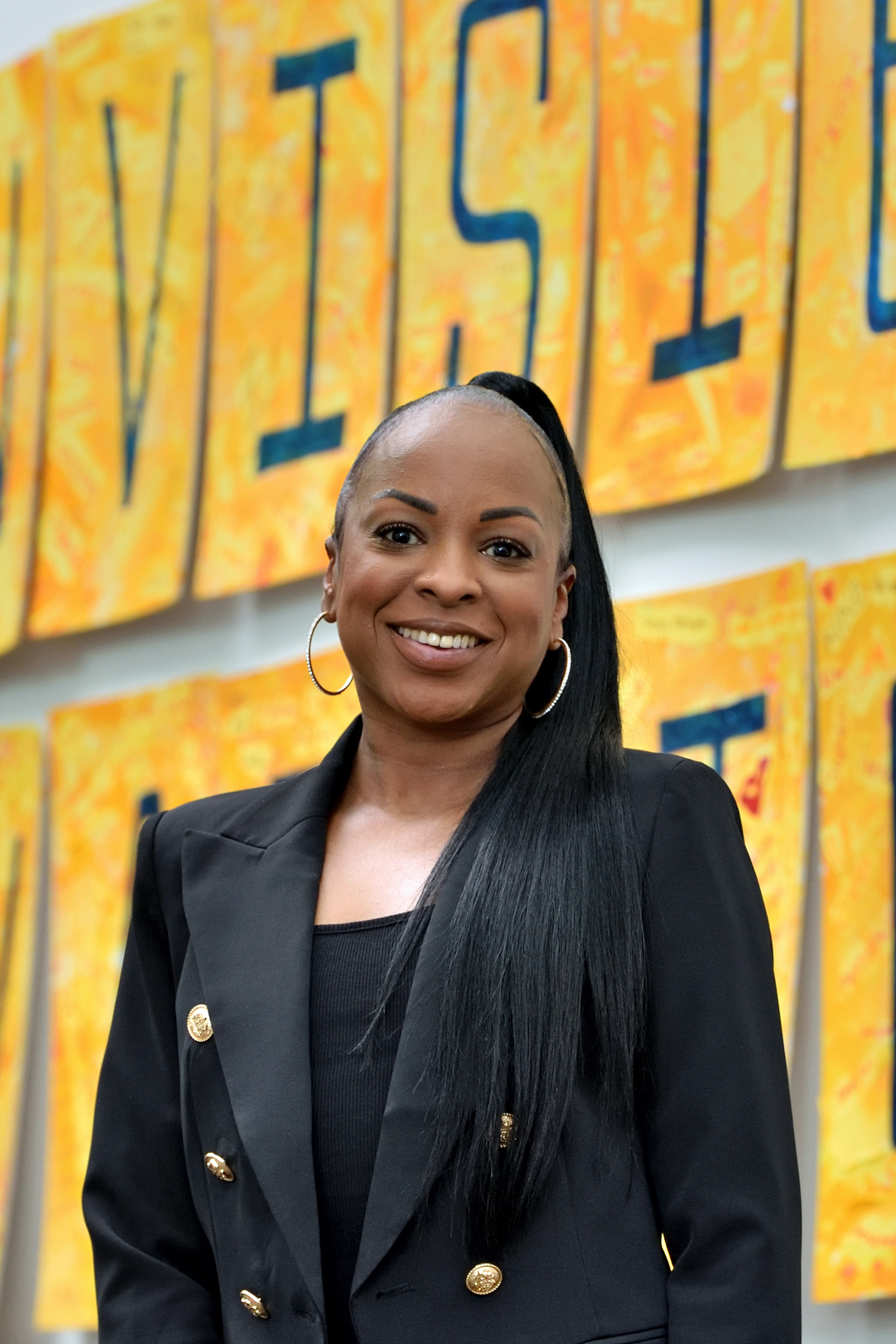Invisible Warrior
Not much is known about the impact of sickle cell disease – something Dr Linda van Keimpema and Louisa Thompson are determined to change.
Words: Kat Brown / Photography: Angela Moore
 November 2020. A presentation by a patient with sickle cell disease (SCD) sounded interesting – and for bioengineering and neuroscience specialist Dr Linda van Keimpema (left), it would be the “start of everything”. She went along, heard Louisa Thompson’s story and the seed was sown for Invisible Warrior, a life-changing project spreading information about a cruelly misunderstood disease.
November 2020. A presentation by a patient with sickle cell disease (SCD) sounded interesting – and for bioengineering and neuroscience specialist Dr Linda van Keimpema (left), it would be the “start of everything”. She went along, heard Louisa Thompson’s story and the seed was sown for Invisible Warrior, a life-changing project spreading information about a cruelly misunderstood disease.
Thompson’s story is at the heart of Invisible Warrior, with the Imperial team making the project a reality. “I want to show the other side of SCD,” she says. “Not just the medical facts but the experience. The pain, the treatment, the mental health aspect and how it impacts your day to day, especially because it’s an invisible illness – hence the project name.”
SCD – a disease where red blood cells are unusually shaped, inhibiting their ability to transport oxygen around the body – is chronic, and there is no cure for most patients. One in 79 babies in the UK is born with the trait, and if both parents carry it, their child will have the disorder. Symptoms can include episodes of extreme pain

(crises) that can last for weeks, anaemia and an increased risk of infections. It is more common in people from African and Caribbean backgrounds, and medical racism is an additional obstacle to gaining treatment.
Diagnosed with SCD at birth, Thompson was told that she wouldn’t live to see 18. Now in her 40s, however, she has become a brave and bold speaker, advocating for patients with SCD. “Her story completely blew me away,” remembers van Keimpema. “I only knew about it from the biomedical side. I never considered what it would mean for patients.”
Van Keimpema reasoned that if she, with her background, was clueless, then there was significant work to do. She and Thompson created a team to deliver awareness projects in London, which has a high number of peoplewith SCD. They have so far reached 1,000 pupils in 18 schools, and their workshops have seen advocates from around the world speaking.
The workshops are delivered digitally, which means that Thompson is safe from infection risk. “I’ve learned that I can’t do it all, so I’ll tell the team when I’m not feeling well,” she says. “They push through without me a lot and still spread awareness on my behalf, and I couldn’t be more grateful to them for being my advocate when I can’t do it.”
In 2022, van Keimpema nominated Thompson for Imperial’s Inspirational Partner Award, one of the President’s Awards for Excellence in Societal Engagement, which she won. However, Thompson is most proud of her interaction with students: “I was so scared at first as I spoke about personal experience and mental health, but it was amazing to be received so well. The empathy and understanding, good wishes and gratitude from the students made me cry.”
 The team are currently at capacity but would love to deliver workshops more widely – to the general public and through wider science events. Van Keimpema is delighted with what they are achieving. “We’re invited to speak at hospitals, we work with the Sickle Cell Society and have a team of more than 20 volunteers helping at events,” she says. “It’s grown bigger than we ever imagined.”
The team are currently at capacity but would love to deliver workshops more widely – to the general public and through wider science events. Van Keimpema is delighted with what they are achieving. “We’re invited to speak at hospitals, we work with the Sickle Cell Society and have a team of more than 20 volunteers helping at events,” she says. “It’s grown bigger than we ever imagined.”
Schools remain at the heart of everything Invisible Warrior does. “It’s very important to come into schools and speak to students around an age when most people struggle anyway,” says van Keimpema. “We normalise the fact that it’s okay to struggle, but it’s also okay to ask for help.”
Many patients with SCD endure post-traumatic stress disorder because of the challenge of having the disease in their childhoods, so spreading awareness has a positive impact more widely. “I’m so proud and still sometimes can’t believe that it’s happening,” says Thompson. “I just want to keep doing the best I can to spread knowledge. At times, it serves as my therapy that, no matter the challenges, some good can come out of it.”
To find out more, visit: imperial.ac.uk/immunology-inflammation/research/invisible-warrior